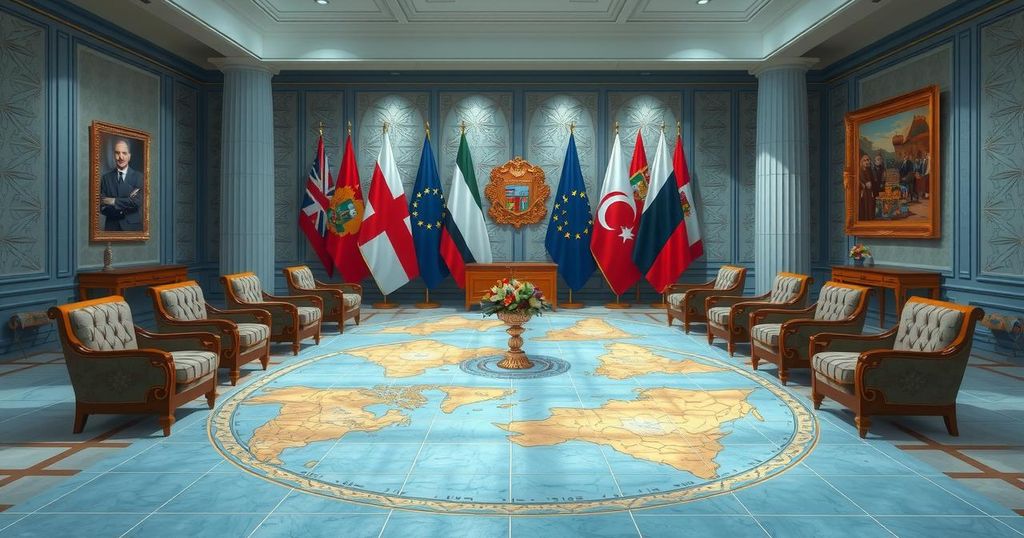Modi Meets Delegations to Discuss India’s Global Stand Against Terrorism

India’s Prime Minister Narendra Modi met with seven multi-party delegations that visited 33 countries to convey India’s stance against cross-border terrorism and other issues. The delegations, composed of lawmakers and former diplomats, reported their findings and emphasized the importance of collaboration in international dialogue. Modi reinforced the need for ongoing communication to amplify India’s voice on global issues, signaling a unified front against terrorism.
On May 17, the Indian government revealed that lawmakers from various political backgrounds would participate in seven delegations. Prime Minister Narendra Modi met with these delegations on Tuesday after they returned from visiting 33 countries in two weeks. Their mission was to communicate India’s position on cross-border terrorism and Operation Sindoor, and, according to the PM, everyone was proud of how well they represented the nation.
During the meeting, which took place at Modi’s official residence, he emphasized the importance of continuing such exchanges to amplify India’s voice on a global scale. He appreciated the delegations, comprising 59 lawmakers and former ambassadors, and indicated that their efforts showcase India’s unity against terrorism. Modi expressed that the exercise conveyed a strong message to the world, according to individuals familiar with the discussion.
Modi posted on X platform, remarking, “Met members of the various delegations who represented India in different countries and elaborated on India’s commitment to peace and the need to eradicate the menace of terrorism. We are all proud of the manner in which they put forward India’s voice.” The meeting lasted over an hour and was an informal gathering where all seven delegations shared their experiences and insights from their international engagements.
Shashi Tharoor from the Congress party, who led the delegation to nations including the US and Brazil, praised the opportunity to serve the nation, signaling a cooperative spirit among the lawmakers involved. Interestingly, the delegations were a mix of National Democratic Alliance leaders and Opposition members, which seems to have surprised some observers both domestically and internationally.
The Prime Minister acknowledged participants’ discussions about reactions to India’s new diplomatic approaches, particularly referencing conversations held during their visits to countries including OIC members. Members of the delegations communicated support for India’s anti-terrorism policies and emphasized the contrast between sympathies towards Pakistan’s military leaders and the general public, who are reportedly frustrated by ongoing conflicts.
Modi reiterated India’s policy stance that “talks and terror” cannot coexist, linking this principle directly to recent tensions over the Indus Waters Treaty with Pakistan, which India has temporarily suspended due to ongoing terror threats. The Prime Minister received feedback on international sentiment regarding India’s diplomatic efforts to combat terrorism.
Notably, it was reported that delegates attributed positive international responses to Modi’s personal relationships with world leaders, underscoring the impact of his diplomacy. Modi encouraged continued collaboration among lawmakers and emphasized the need to utilize parliamentary friendship groups for soft diplomacy. He shared insights from his own experiences abroad, illustrating the need to manage India’s reputation as a favorable investment destination amidst regional unrest.
Among the delegates in attendance were members from the BJP including Ravi Shankar Prasad and prominent leaders from various Opposition parties, showcasing a rare bipartisan effort in conveying India’s message abroad. Prior to the meeting, Ravi Shankar Prasad stated during a press conference that the delegation shared significant evidence of Pakistan’s involvement in terrorism against India, clarifying that India’s grievances lie not with the Pakistani people but with their military leadership.
In summary, Prime Minister Narendra Modi’s meeting with multilateral delegations highlighted the government’s commitment to presenting a united front against terrorism. The diverse backgrounds of the delegation members – spanning both ruling parties and opposition – indicate a significant bipartisan effort in international diplomacy. Modi’s encouragement for continued collaboration emphasizes a shift in how India addresses global perceptions and challenges in its fight against terrorism, which remains a crucial aspect of its foreign policy agenda.
Original Source: www.hindustantimes.com







